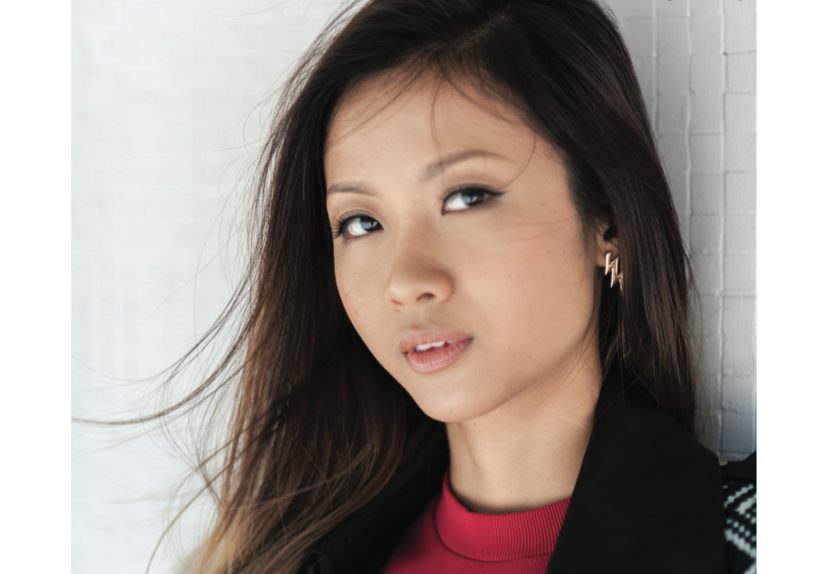by KIMBERLY-ROSE KA’IULANI WOLTER
In his latest film, Aloha, Cameron Crowe has written one of the most prominent hapa characters in a big budget motion picture: Allison Ng. For the mixed-race role, he’s cast the oh-so-very white actress, Emma Stone. On his website, Crowe explains, “Captain Allison Ng was written to be a super-proud ¼ Hawaiian who was frustrated that, by all outward appearances, she looked nothing like one.”
To understand why I, as a hapa, find the casting problematic, let me tell you a little more about what it is to be hapa.
Hapas come in all shades and any combination of eye color, hair and complexion. It’s often what makes us exotic to others, hard to place ethnically—or, what completely alienates us from our own people. We can blend in or stand out.
My mother is Hawaiian, Korean and Chinese. My father was French, German and Hungarian. I was born and raised in Hawai’i and moved to Los Angeles to pursue an acting career when I was 20. (Side note: “Hawaiian” does not mean you’ve lived in Hawai’i for 20 years; it means you can trace ancestral lineage prior to when British explorer Captain James Cook arrived in 1778.)
 Kimberly-Rose’s father and mother. (Photo courtesy of Kimberly-Rose)
Kimberly-Rose’s father and mother. (Photo courtesy of Kimberly-Rose)
There is a certain discomfort to spending most of your life being misunderstood and inappropriately labeled. Since leaving Hawaii, where being hapa is common, I’ve learned the world does not agree on what I am.
My first day in L.A., someone spoke to me in Spanish; I was flustered yet flattered. “I don’t speak Spanish, I’m from Hawai’i,” I explained.
During my first media interview as an actress, a journalist from China asked me, “What does it feel like to be Asian?” As if being Asian was a perfume I sprayed on.
A few years later, when I went to Virginia to meet my white boyfriend’s mother for the first time, she squealed, “Oh, it’s okay ‘cause you don’t look Asian.”
I’ve learned people are comfortable generalizing about my race or being outright racist because I “don’t count” as Asian Pacific Islander. I’ve also learned I’m a chameleon of sorts—people identify me based on their experiences. White people think I’m white, while in Latin countries I’m mistaken for a Latina. Asians suspect that I’m lying about my race while hapas seem to recognize other hapas. The irony is, growing up, my cultural identify didn’t come from what I looked like—it was rooted in who raised me. My mother—a beautiful and strong Hawaiian, Chinese, Korean single woman—I came from her; I identified with her.
Imagine my surprise when I got older and realized that’s not how people saw me.
I get it: we hapas are hard to pin down because we are Asian, Black, Hispanic, Indigenous, Polynesian and White. The only thing we are not is one exclusive race. Being mixed is what defines us. Maybe for the general population that’s hard to comprehend because there is a loss of origin or we are not easy to externally categorize.
So how about Crowe’s idea to cast Stone as Allison Ng? In his apology, the director explains that Ng is “extremely proud of her unlikely heritage” and “feels personally compelled to over-explain every chance she gets.”
“The character was based on a real-life, red-headed local who did just that,” he writes. Got it. I can relate, I like.
Yet, in the film, Ng is brought to a village of Hawaiians living as a sovereign nation. Instead of wrestling with the internal struggle of being a proud Hapa-Hawaiian whose own people may not recognize her as their own, Stone plays Ng as a bright-eyed tourist who acts like she’s never seen Hawaiians before. There is no mana, no cultural pride or connection to straddling multiple ethnicities.
If Crowe was compelled to write a character who is constantly telling everyone she’s Hawaiian, to the extent other characters laugh about it, why did he fall short in entrusting the role to a hapa actress? Sure some hapas can look white and acting is about pretending, but when being hapa is ostensibly the crux of the character, hire a hapa.
Don’t take my race and culture and call it an actor’s choice.
 (Photo by Neal Preston/Columbia Pictures)
(Photo by Neal Preston/Columbia Pictures)
Aloha would have been a unique opportunity to break in a new hapa actress or introduce one to a wider audience. A white actor should never appropriate a role written for an Asian Pacific Islander—although it’s happened time and time again.
Yay to Cameron Crowe for being curious about Hawaiian sovereignty; nay to Crowe for hiring a white actress to play a hapa trying to protect Hawaiians from the encroachment of white society.
Let’s be real: This isn’t just about Aloha, this is about a U.S. film industry that whitewashes anything it gets its hands on. Even when Hollywood wants to promote diversity, it can’t seem to figure it out. Over and over, Hawaiians have seen their stories told without their true likeness onscreen, replaced by an outsider butchering the language and cultural mores.
Crowe himself writes that he has “learned something very inspiring” from the backlash of casting Stone. “So many of us are hungry for stories with more racial diversity, more truth in representation, and I am anxious to help tell those stories in the future,” he writes. Well, maybe next time? Oh wait—for his next project, the Showtime comedy, Roadies, Cameron has cast another Caucasian actress, Jacqueline Byers, to play a character named Natalie Shin. With the notably Asian last name, it is unclear if Natalie is supposed to be part Chinese or Korean.
In any case, Mr. Crowe, writing API characters in your scripts, then casting white actresses to play them, is the opposite of “racial diversity.”
I wonder, what is Crowe so afraid of—low ticket sales? News flash: Aloha, according to box office numbers, bombed even with three A-list Caucasian leads not to mention an amazing Caucasian supporting cast. Studio executives and directors, it’s 2015: time to expand what the leading lady looks like. Furthermore, diverse characters don’t always need to have a specific, race-based purpose for why they exist in films. Let us breathe onscreen as we breathe in life and the stories will get richer.
Hollywood, you’re already an archaic institution pandering to the last of the dinosaurs. Catch up, because out here in the real world, kids are mixed and racial diversity is no longer an exception—it’s the rule.
___
 Kimberly-Rose Ka’iulani Wolter is a writer, actor and producer who lives in L.A. She wrote and starred in the Hawaii-based comedy, “4 Wedding Planners,” about three Hapa sisters. Her first feature film, TRE, in which she also co-starred, won Special Jury Prize at the 2007 San Francisco International Asian American Film Festival and was nominated for The Maverick Award. Wolter also co-founded and served as co-Artistic Director of the critically acclaimed, L.A.-based VS. Theatre Company for six seasons.
Kimberly-Rose Ka’iulani Wolter is a writer, actor and producer who lives in L.A. She wrote and starred in the Hawaii-based comedy, “4 Wedding Planners,” about three Hapa sisters. Her first feature film, TRE, in which she also co-starred, won Special Jury Prize at the 2007 San Francisco International Asian American Film Festival and was nominated for The Maverick Award. Wolter also co-founded and served as co-Artistic Director of the critically acclaimed, L.A.-based VS. Theatre Company for six seasons.









